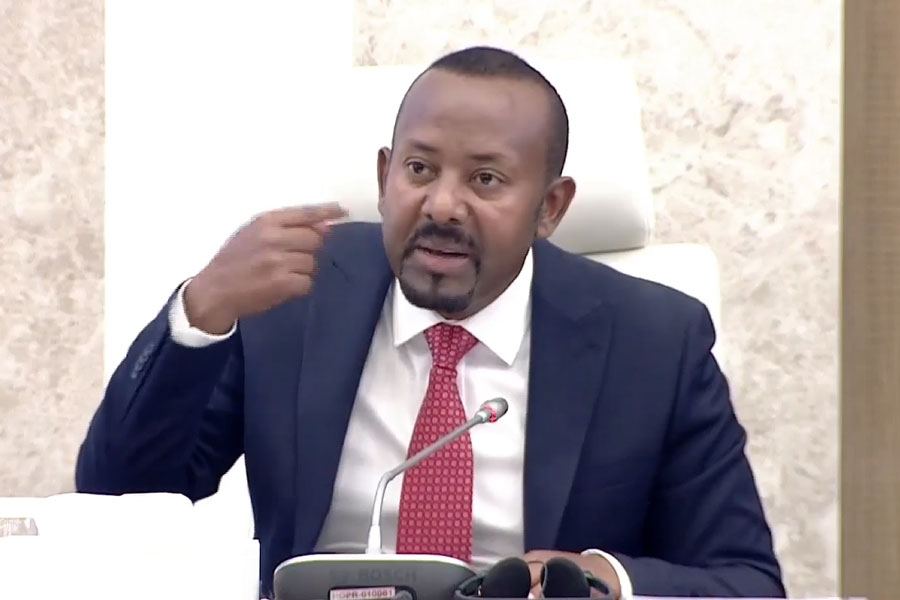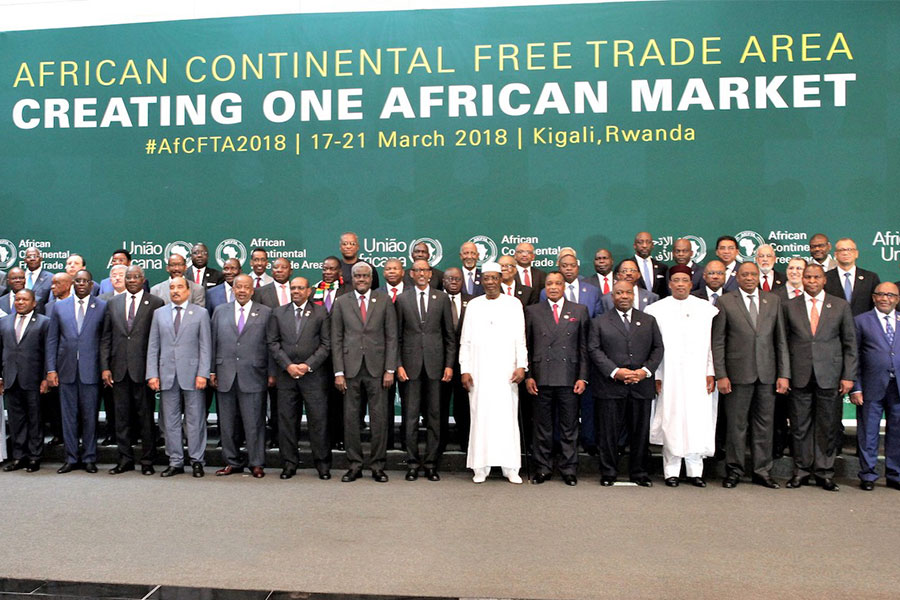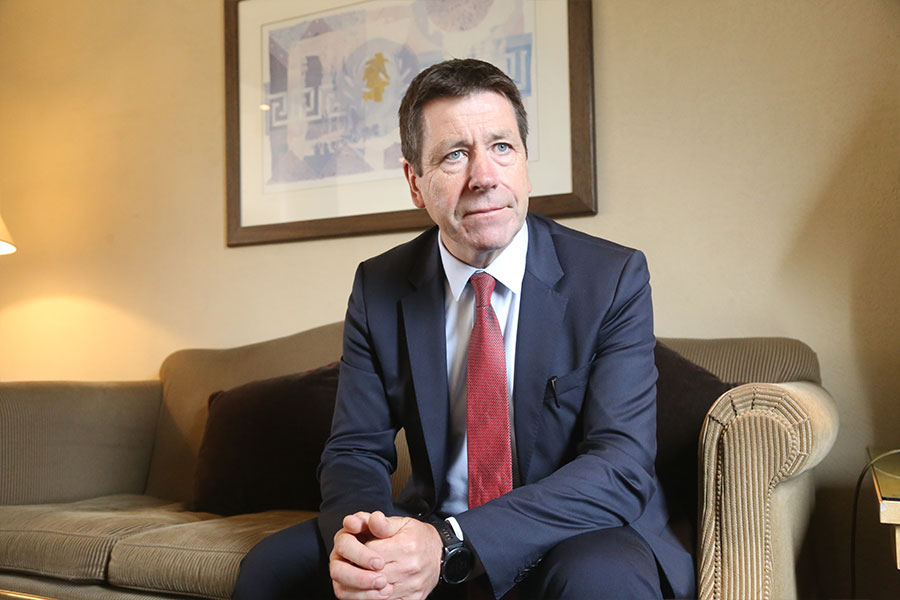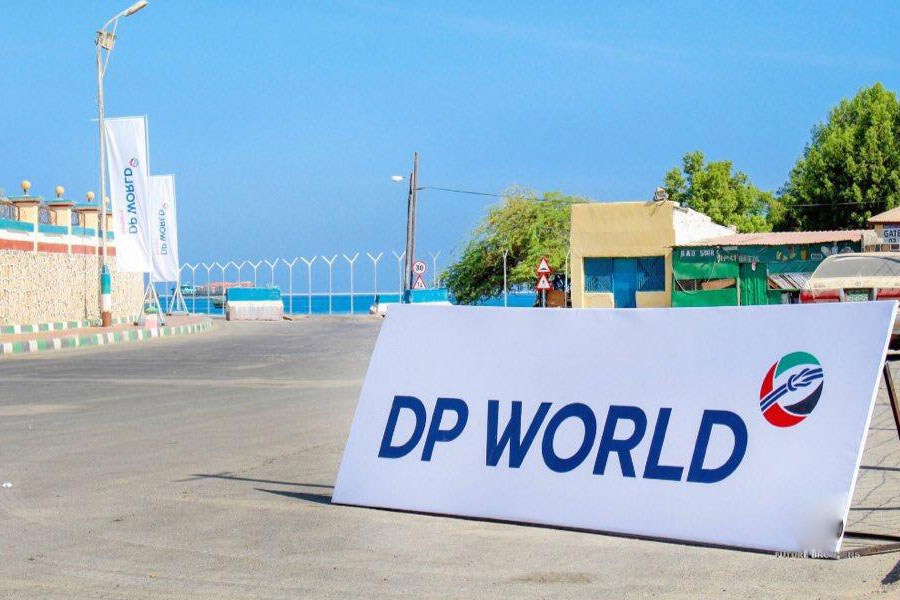
MIDROC Ethiopia Investment Group has contracted a Saudi Arabian company to supply 244 pieces of agricultural machinery to irrigate farmland for ELFORA and Ethio Agri-CEFT. Alkhorayef Industries will be paid 1.2 billion Br for the supply, commissioning, engineering, development, installation and maintenance services of the machinery for one year.
The farmland located in Shalo, Oromia Regional State, and Bir-Sheleqo and Ayehu farms in Gojjam, Amhara Regional State, will be irrigated using a centre pivot irrigation system: an irrigation method which waters crops in a circular area using rotating machinery centred on the pivot. A total of 13,500ha of farmland will be irrigated. One centre-pivot irrigation machine is capable of watering 80ha of cropland.
The agreement between the two was signed last Friday at Sheraton Addis Hotel between Jemal Ahmed, CEO of MIDROC Investment Group, and Khaled A. Shalabi (PhD), vice president at Alkhorayef. The agreement will last through the year 2021 with the possibility of an extension.
The company has already started preliminary work, according to Mekonen Teshome, communications & public relations manager at MIDROC Ethiopia.
MIDROC Ethiopia Investment Group was established in 1996 as a member of the MIDROC Group Companies, which incorporates 21 companies. The Investment Group currently operates 81 companies in agriculture and agro-industry, construction, hotels and tourism, manufacturing, mining, oil and gas distribution, and real estate.
Alkhorayef, which is headquartered in Riyadh and manufactures industrial, agricultural and irrigation equipment, will conduct studies to develop, install and supply the systems in collaboration with MIDROC, according to Shalabi.
"Alkhorayef will soon start conducting assessments regarding the weather, soil type and rainfall in the irrigation areas," said Shalabi.
ELFORA was established through the acquisition of eight livestock and meat processing plants with a total value of 54.7 million dollars. It is engaged in the production of crops such as fruits and vegetables, coffee, tea, cut flowers, and oilseeds in Oromia Regional State. It is also involved in food processing ventures.
The irrigation technologies to be supplied to MIDROC will enable the company to produce three rounds of harvests a year. Previously, the farms were dependent on rainfall, and some were cultivated two times a year.
“The project is vital in increasing the productivity of our farms and exports,” said Mekonen. “It will increase the yield of crops, especially that of corn by 100 pc.”
Ethio Agri-CEFT, which has over nine farms in the country, grows coffee on 1,000ha of land in Gojjam. MIDROC grows the coffee in the shade, because shade preserves moisture and increases chances of a successful yield. However, a hectare of shade-grown coffee farmland produces only four to six quintals of coffee per harvest. A well-irrigated hectare of coffee farmland, however, could potentially yield up to 30ql of coffee without shade.
"With this project, the company hopes to be able to grow coffee without shade and increase productivity by at least 200pc," said Mekonen. “We piloted this, and we got 14ql of coffee per hectare."
Zenaw Tessema, general manager and hydrogeology expert at water-related consultancy company Aquacon Engineering Plc, argues that the pivot irrigation system is susceptible to water wastage and evaporation.
"A large-scale drip irrigation system would be more suitable and economically feasible than the pivot centre method to both MIDROC and the irrigation sector in general," says the expert.
Zenaw also indicated that the drip irrigation system minimises water wastage and evaporation and enables farmers to manage and use the limited supply of water efficiently.
"It's also preferable in terms of cost and operating ease, because it does not put high pressure on the pipelines," said the expert. “This system is well-utilised and was developed in Israel.”
PUBLISHED ON
Oct 17,2020 [ VOL
21 , NO
1068]

Radar | Apr 30,2021

Fortune News | Apr 24,2021

Radar | Jun 27,2020

Fortune News | Mar 23,2019

Addis Fortune | Aug 01,2022

Fortune News | Apr 20,2019

Radar | Aug 28,2021

Radar | Sep 29,2024

Radar | Jul 18,2020

Commentaries | Dec 07,2019

Dec 22 , 2024 . By TIZITA SHEWAFERAW
Charged with transforming colossal state-owned enterprises into modern and competitiv...

Aug 18 , 2024 . By AKSAH ITALO
Although predictable Yonas Zerihun's job in the ride-hailing service is not immune to...

Jul 28 , 2024 . By TIZITA SHEWAFERAW
Unhabitual, perhaps too many, Samuel Gebreyohannes, 38, used to occasionally enjoy a couple of beers at breakfast. However, he recently swit...

Jul 13 , 2024 . By AKSAH ITALO
Investors who rely on tractors, trucks, and field vehicles for commuting, transporting commodities, and f...

Oct 25 , 2025
The regulatory machinery is on overdrive. In only two years, no fewer than 35 new pro...

Oct 18 , 2025
The political establishment, notably the ruling party and its top brass, has become p...

Oct 11 , 2025
Ladislas Farago, a roving Associated Press (AP) correspondent, arrived in Ethiopia in...

Oct 4 , 2025
Eyob Tekalegn (PhD) had been in the Governor's chair for only weeks when, on Septembe...